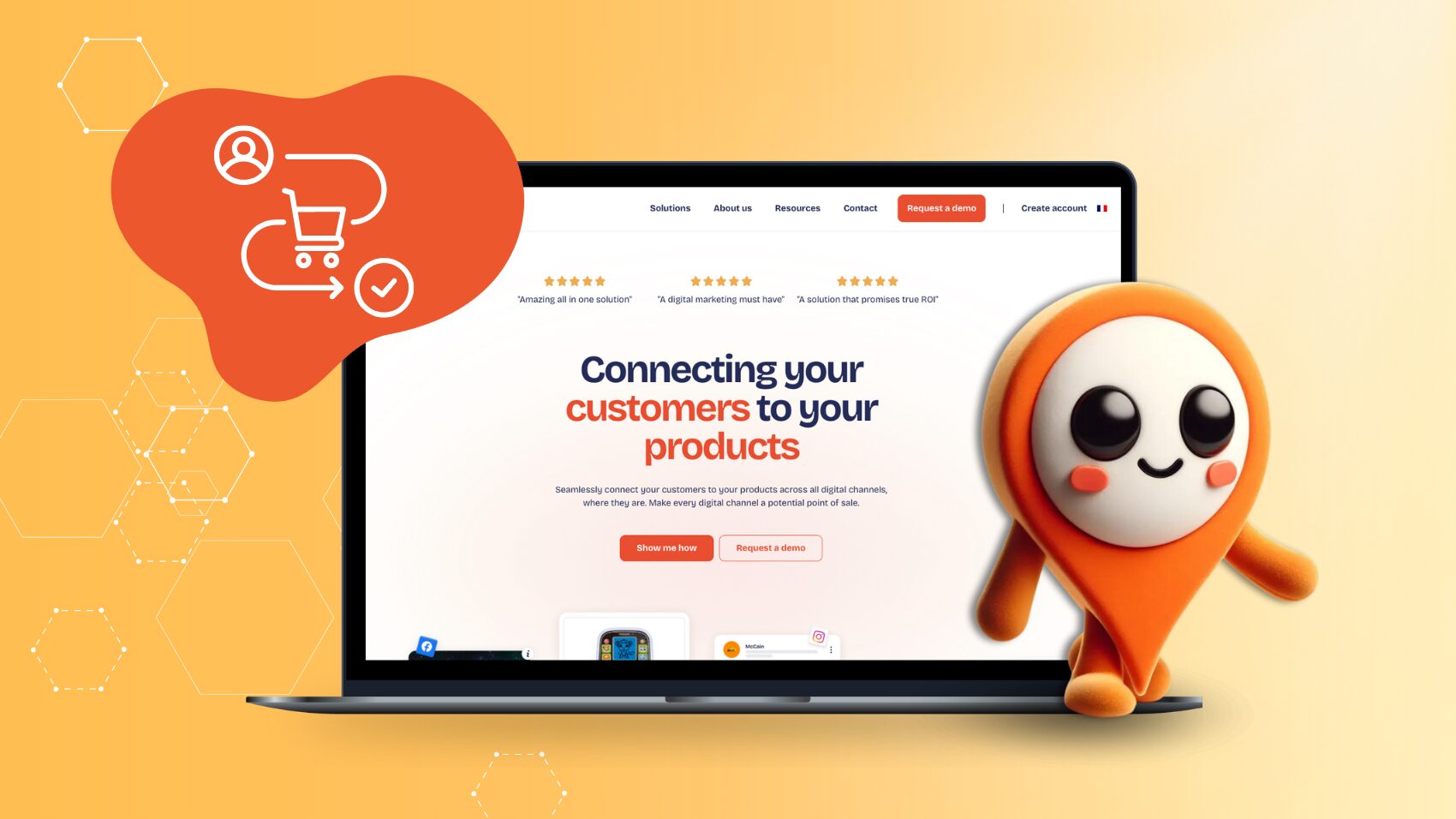Three years ago, only 45% of companies had already implemented a data strategy according to the CDO, EBG and Informatica Barometer, and 23% of them had a CDO (Chief Data Officer) among their team.
Data is becoming a major element in creating value and helping decision-making today. The importance of data management is recognized at all levels of the company. Indeed, still according to the EBG, data is considered by 85% of the professionals questioned, as a decisive growth lever for companies. However, the definition of data strategies is still has still not been clearly established. In France, organizations such as SMEs and ETI are the most behind in the exploitation of data because it is difficult for them to capitalize on this resource without implementing the appropriate strategies.
Data: a priority in organizations
The importance of data in business is today unanimously recognized. Data is the engine of customer relations, business strategy and any marketing project. The industrialization of internal company data is therefore revealed as a governance necessary for its growth.
Investing in data management solutions is a no-brainer for many businesses. However, the quality of the data they integrate is still a priority. How to effectively capitalize on incomplete, imprecise, even inaccessible information?
The value of data depends above all on its quality. Data quality is therefore at the heart of business issues. The qualification process must start as soon as the data is integrated into the organization. A major challenge when you know that once stored, crossed and analyzed, qualified data brings high added value at all levels of the company.
Data is the fuel for analytical applications and business activities. Ensuring the quality of the data means guaranteeing effective sales and loyalty actions. Data quality has a major role in optimizing the impact of marketing and HR campaigns. This is where the question arises of where this data comes from?
Like large groups, SMEs and mid-caps produce a multitude of data on a daily basis. This data comes from many sources: CRM, management systems, intranet, billing software, etc. The data can also comes directly from their websites and from the various studies carried out.
Towards data governance
For some time now, my data governance has been on everyone’s lips. And this is not about to stop, on the contrary! The challenges linked to data have become crucial today since the explosion of new paradigms namely Artificial Intelligence, IoT and Big Data. Indeed, this is about creating, enriching, protecting and sharing quality data capital: a major asset for enhancing the company, ensuring its development, its innovations and guaranteeing its sustainability. With a rather worrying feeling: no one controls anything anymore! And yet data is at the heart of the strategies of leaders whether they come from large groups or small organizations, whatever the sector of activity. Data is therefore proving to be a source of differentiation and innovation, and therefore promises to be a new Eldorado that has been neglected by companies for too long.
Going back to basics, we define data governance as “a set of processes, roles, rules, standards and metrics to ensure effective and efficient use of information, in order to help companies achieve their goals” . It defines the procedures and responsibilities guaranteeing the quality and security of data within a company or an organization. It also defines who can perform which action, on which data, in which situation and according to which method.
The problem of data governance becomes a central problem, from the moment the production of data linked to your activity explodes. A successful website, with many visits, subscriptions to your lists, connections established between the website, the after-sales service, even the production sites, a mobile version of your site, apps, etc. Such an explosion quickly happened.
This is when you have to think about Data governance. This amounts to defining all the procedures that will be put in place within the company to control and supervise the collection of data and above all define their use.IThis is the definition that the best specialists have tried to give, including Gartner (he dedicates webinars and training on this subject).
To summarize, this is about embarking on the construction of its vision of data at the enterprise level. Three points to note:
1 Data is no longer the element of a database, it becomes the key element itself of a new value brought by the company to its customers, its employees etc.. how do we achieve it ?
2 In particular the GDPR (European data protection regulation), the principle of which is as follows: whoever entrusts their personal data must know what it will be used for and be able to verify it at all times
3 This is both the provision of effective tools in terms of security, storage and implementation of good procedures, namely reliability, service life.
The Data Strategy
A data strategy ensures that the collected data set can be used, shared and easily moved from one system to another. The goal is to make information actionable at the right time, in the right place, and by the right people to add value to the organization.
The data strategy must define the different stages of the procedure for converting raw data into finished products: transformation, cleaning, qualification, putting into the desired format, storage, securing, etc.IThe data strategy defines the common methodologies and processes making it possible to manage, manipulate and share data effectively and sustainably within the structure.
The preamble to this strategy is naturally the definition of a goal for the company. The first questions to ask are therefore the purpose of the data processing and the difficulties it must overcome.
What contributions for the company ?
The data collected, qualified, stored and then analyzed by a company allows it to generate more business opportunities and to distinguish itself from the competition.
Quality collected data means developing :
– A more effective sale
– Optimizing customer relations: “From the quality of data comes the quality of customer relations”
– Enriching the customer experience
– Reduction of losses and harmful errors
– Long-term, medium-term and short-term strategic vision = act and make informed decisions
The Data Strategy
Data is a new field of work for companies. This is paradoxical because companies have been processing and storing a huge amount of data for a long time. On the other hand, this data has long been considered as derivatives derived from the main activity, and not as an asset as such. For historical reasons, their responsibility has often been delegated to the ISD. However, the latter is generally not the best placed to understand, organize and interpret this data on a business level.
Today, almost all French organizations have started data projects, and more than half have recruited a Chief Data Officer. In less than three years, therefore, most companies have realized the crucial importance of these new challenges and have reviewed their recruitment priorities. This rapid development, across all industries, is also reflected in the various challenges that must be met by data experts. Data is only of value when you know how to interpret it, which is why clear procedures for managing and governing this data are necessary when you want to deploy data processing operations in a robust manner.
Here are some key principles :
– Unlock dedicated data positions (DSI – CDO)
Within SMEs and mid-caps, there is seldom a person exclusively dedicated to the implementation of the data strategy such as a “Chief Digital Officer” in large groups. It is usually the CIO, responsible for the hardware and software components of the company’s information system, that plays this role in the context of digital transformation.
The data necessary for the company’s objectives are available and support the business indicators of value creation.
The role of the Chief Digital Officer, sometimes called Director of digital transformation, is both pilot and driver, with a high level of responsibility. They combine many skills (marketing, strategy, IT, business, innovation, business logic, process) and interpersonal skills (communication, openness to others, ability to convince …) to implement this famous digital transformation.
With this data, they will be able to implement strategic actions for the company and manage their activity independently. Businesses generally benefit from Business Intelligence tools such as dashboard solutions centralizing their department’s KPIs.
– Development of a data qualification strategy;
– Definition of the data governance model will be used to define all the processes for processing incoming data. Mechanisms necessary for the proper use of data;
– Get specialized tools to facilitate the qualification of mass data
Of course, the implementation of the GDPR on May 25, 2018 has partly accelerated this transformation process. After installing a common foundation of fundamentals (governance, tools, acculturation, etc.) and focusing on regulatory aspects first, CDOs are now embarking on value creation and scaling up. To put it simply, we go from organizational and legal objectives to objectives more oriented towards business. And that’s good !
More specifically to distributors, there is the issue of inventory management. Still many do not implement the technology required to centralize information on changes in terms of stocks by store and their E-commerce. An information system such as an ERP (enterprise resource planning) can in this case be very useful with a view to developing visibility on the stocks produced, making it possible to manage them better and reduce costs.
Thanks to their digital transformation, they have the opportunity to benefit from more online visibility and qualified traffic. And this by being displayed directly on the brands’ communication media. How? ‘Or’ What ? By integrating the Click2Buy ecosystem, displaying distributors on our where to buy solution by sharing their product feeds.
And you, where are you with your data strategy?
Contact us for more information
Sources
Talend
Silicon
Webmarketing
Inventiv-it
Usine-nouvelle
Delville-management
Axysweb
© Unsplash image














